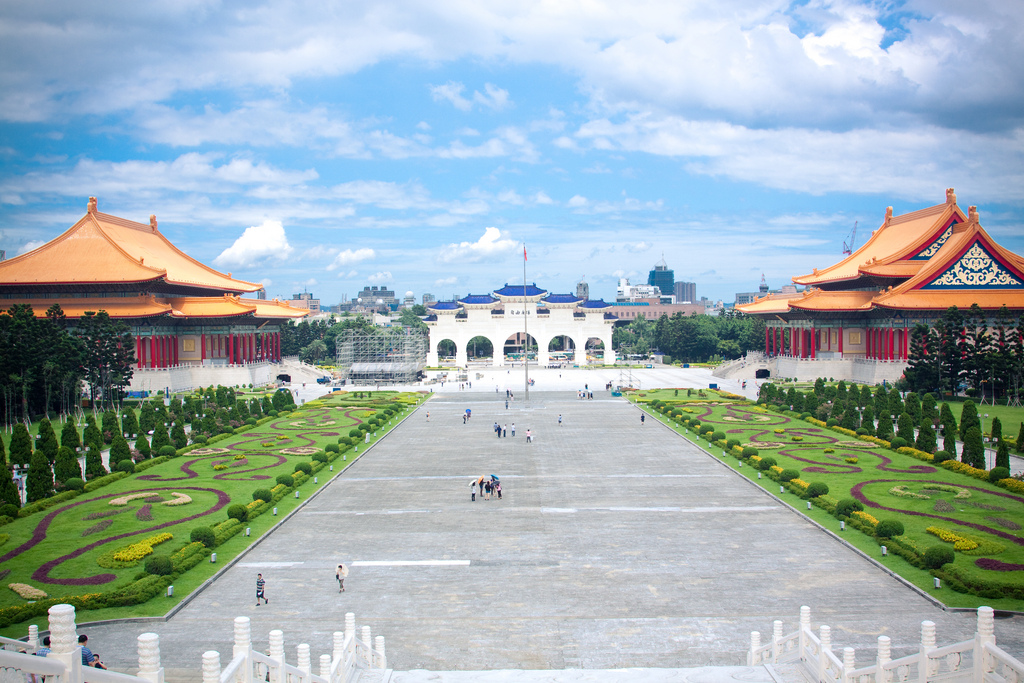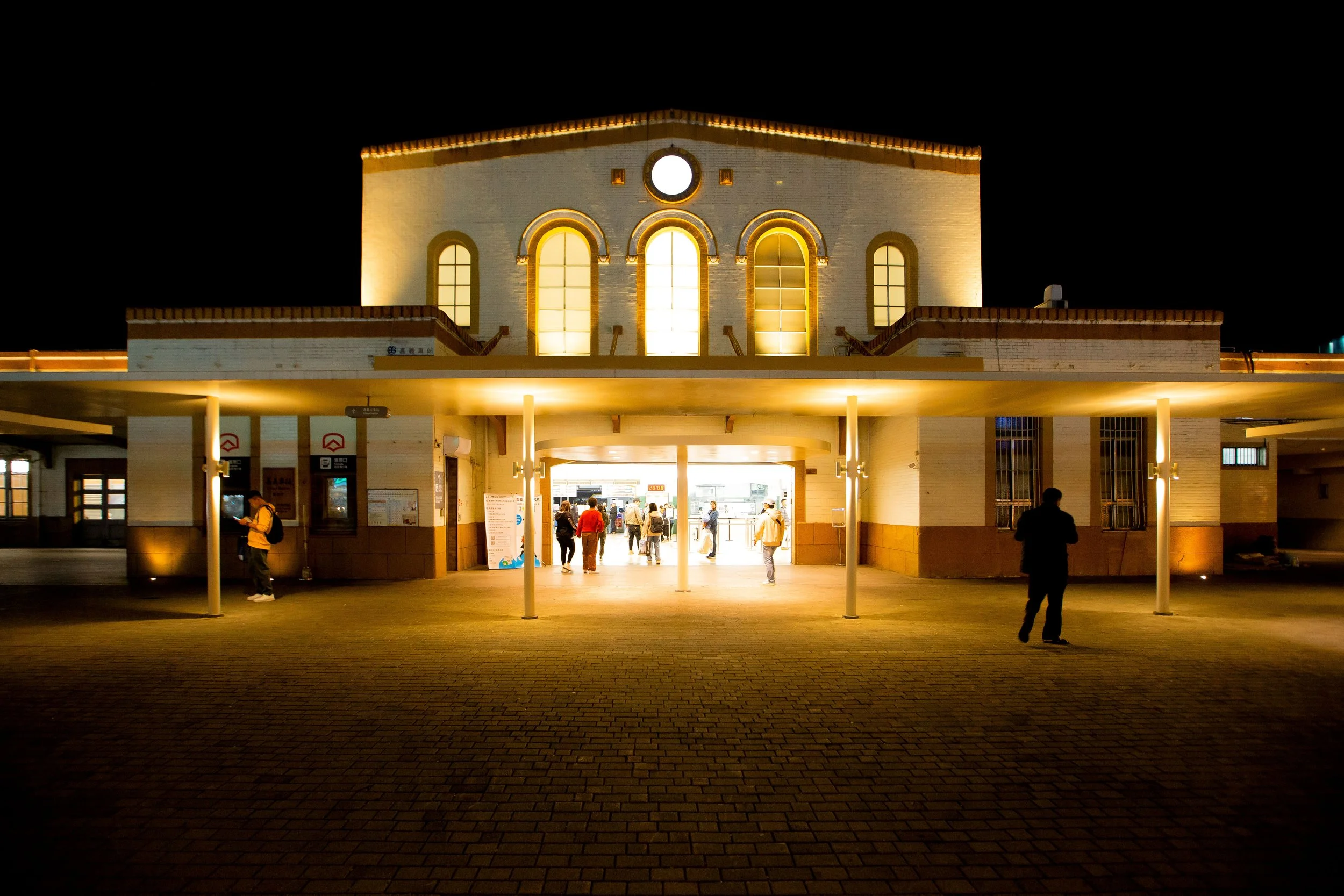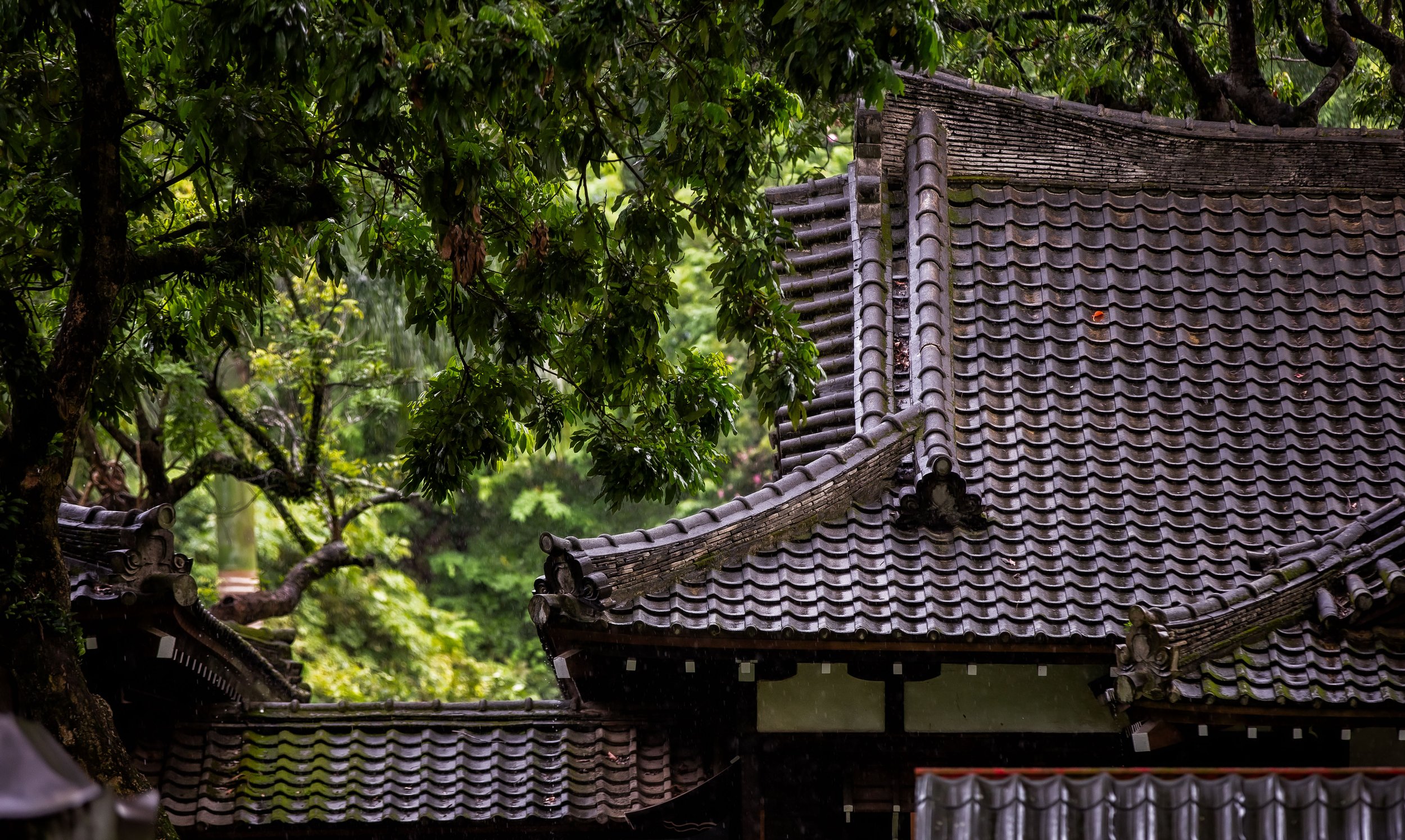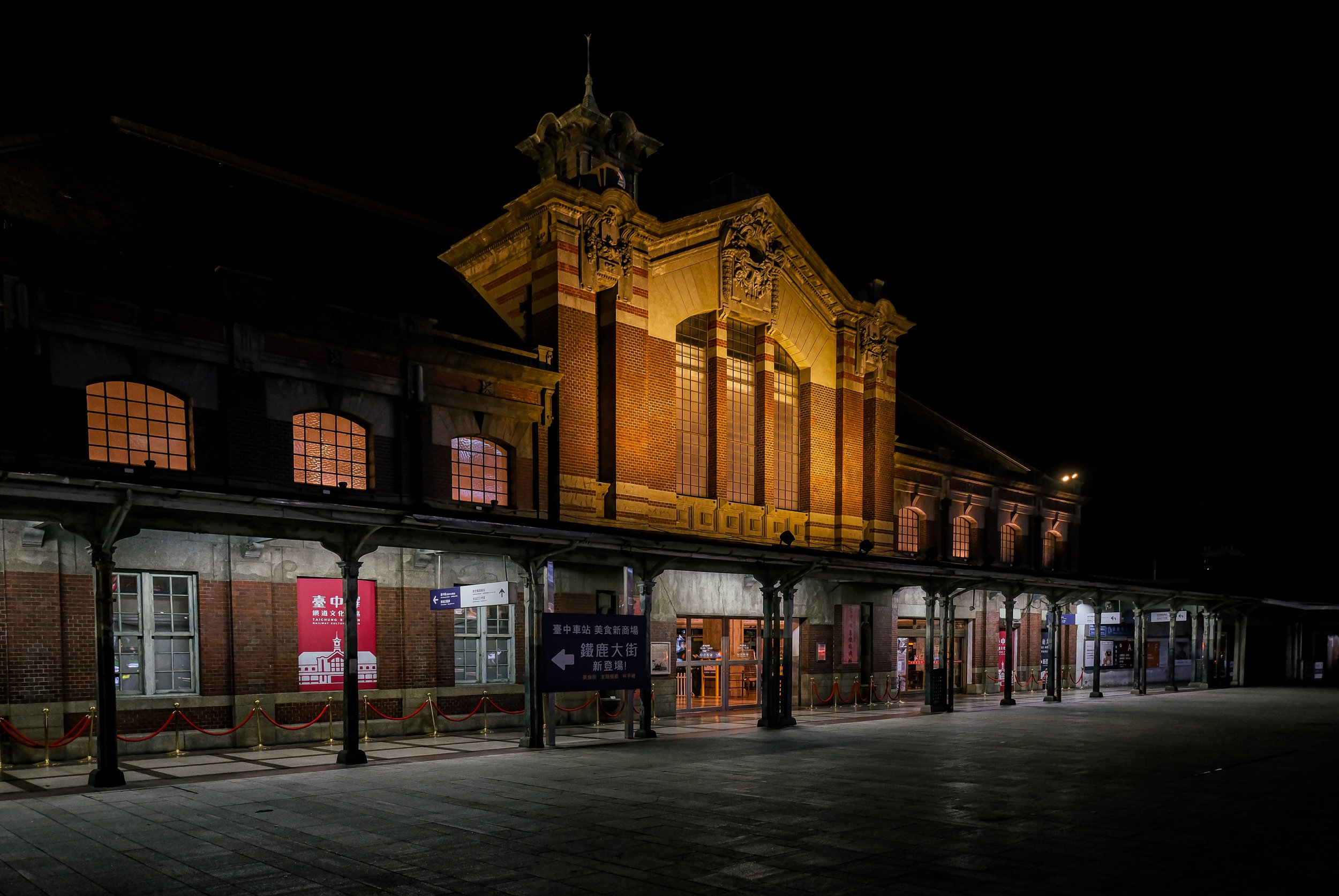How could a country run by a military dictatorship despite tremendous odds and an almost complete lack of any international assistance turn into one of the most successful and vibrant democracies almost overnight?
If you asked that question a few decades ago you'd probably hear most experts say that it couldn't work – How could a nation that lived under such conditions transition into a liberal democratic country with all the freedoms, equality and liberty that western nations profess to enjoy?
The transition to democracy in Taiwan hasn’t been a perfect one and there have been ups and downs, but as we approach the upcoming presidential and legislative elections on January 16th, 2016, I think it's important to reflect on Taiwan’s success and why democracy is so important to the 23 million people living in this country and how they use it (in their unique way) to pave their own road to the future and act as an excellent example for the rest of Asia and the world in the process.
Before I talk about the election or the history of democracy here I think it's important to note that while people here are embracing democratic principles, an unprecedented shift has started to take place in the west which has initiated a move away from traditional democracy and party politics. The disillusionment of voters both young and old with the current state of politics as well as a distrust of elected officials has resulted in a public outcry for reforms and better representation.
To that effect we are seeing the rise in popularity of the Bernie Sanders and the Donald Trumps of the world who both appear not to be your atypical politician, but a manifestation of the anger people feel on both sides of the equation towards their elected representatives and the system itself.
Taiwan is not immune from such trends and last year a popular independent and progressive candidate ran for the mayorship of Taipei city and won taking power from the political parties that have polarized society.
A recent study titled: “The Democratic Disconnect” which analyzed trends in democratic countries between 1995 and 2014 found that attitudes with respect to democracy in the west have started to become less than favourable. Taiwan on the other hand was on the opposite end of the spectrum - To the people living in this country, the democracy that we see today is the result of a hard fought battle and a test of the political maturity of the populace. The people of this country were forced to endure years of Japanese colonialism as well as decades of martial law which brought with it a period known as White Terror (白色恐怖) under the Nationalist government led by Chiang Kai Shek (蔣介石) who had retreated to Taiwan and set up shop at the end of the Chinese Civil War.
The monopoly of power once held by the Nationalist Party since its retreat in 1945 ended in the 90s and since then the country has held several top level and legislative elections with peaceful transitions of power. There are elections at every level of government in Taiwan with candidates vying for positions ranging from local village leaders, town and city councillors, mayors, national legislators and president. There are candidates from a number of political parties vying for power ensuring that there will never again be a monopoly when it comes to governance in the country.
- Timeline of events leading up to democratization -
- 1947 – Nationalist troops set a precedent for the next 40 years by violently crushing island-wide protests in what is now known as the 228 incident.
- 1949 – Nationalists lose civil war to the Communists in China and a mass migration of people loyal to the KMT retreat to Taiwan in order to regroup.
- 1971 – The ROC leaves the UN when the international body switches recognition to the Peoples Republic of China.
- 1975 – Chiang Kai Shek passes away and Vice President Yen Chia-Kan (嚴家淦) assumes control of the government as interim leader.
- 1978 – Chiang Ching Kuo (蔣經國), son of Chiang Kai Shek becomes president.
- 1979 – The US switches diplomatic recognition to China and passes the Taiwan Relations Act which requires the US to help defend the island from Chinese aggression.
- 1984 – To the surprise of many Chiang Ching Kuo hand picks Lee Teng Hui (李登輝), a Taiwan-born member of the KMT as Vice President.
- 1986 – President Chiang pledges political reform including a free press, the formation of opposition parties and the right to lawful assembly.
- 1987 – Taiwan ends martial law after more than four decades.
- 1988 – Chiang Ching Kuo passes away and Lee Teng Hui becomes president.
- 1994 – Government allows the formation of new independent television stations.
- 1996 – The country holds its first free and open elections with Lee Teng Hui winning in a landslide.
- 2000 – KMT presidential candidate Lien Chan (連戰) and Independent James Soong (宋楚瑜) are defeated in elections by opposition party candidate Chen Shui Bian (陳水扁) ending half a century of Nationalist rule over the island.
- 2004 – Chen Shui Bian wins reelection by a thin margin.
- 2008 – Ma Ying Jeou (馬英九) returns the KMT to power.
- 2012 – Ma Ying Jeou wins reelection by a smaller margin (51%-45%)
- 2014 – Sunflower (太陽花學運) protests take control of legislature in order to pressure government to stop taking unilateral “black box” (黑箱) action with regards to relations with China.
- 2014 – Nine in One elections (九合一選舉) take place for all the cities and counties in the country and KMT is dealt a massive defeat forcing President Ma to step down as the chairman of the party setting up a battle for 2016 presidential and legislative elections.
Taiwan has a healthy and vibrant civil society that boasts a free and open media, civil liberties, freedom of speech and assembly and ensures the same rights and privileges as any other western democracy all while under the tremendous threat and shadow of the Chinese Communist Party in China.
Some may argue that Taiwan’s civil society is sometimes too active and too erratic but the people here have little time to waste on civil servants who aren't holding up to their promises and chaos often has to erupt in the form of peaceful protest movements to bring about reforms. These movements are a big part of life here in Taiwan and if the people aren't happy they will be sure to let their elected officials hear about it as they did during the Wild Lily movement (野百合學運) and the most recent Sunflower movement (太陽花學運.)
Election campaigns are often just as loud and rambunctious as the protests themselves with firecrackers, taiko drums, speaker trucks and open houses in every neighbourhood in the country where people discuss the issues and meet with their elected representatives.
The country is currently in the midst of an election campaign which is forecasted to bring a massive change in the political and social climate. The first major change is that we will have a new president - The current president Mr. Ma Ying Jeou (馬英九) will be forced to step down due to term limitations after serving for the past eight years as the head of state. His dismal approval ratings and lack of any real positive governance is projected to cause a massive political shift with his Nationalist party being defeated at all levels as a reaction to his poor performance.
Ma was elected in a landslide back in 2008 with his “633” economic policy (6% GDP growth, US $30K a year base salary/3% unemployment) which has not even come close to being realized and is a microcosm of the failure of his presidency. Once elected, Ma focused most of his policies on warmer relations with China and because of that all of his domestic policies were a disaster and the economy and the country suffered.
In November 2014 when the nine-in-one municipal elections (九合一選舉) took place, Mr. Ma’s KMT lost the majority of cities and counties that they controlled due to a collective effort of social movements which opposed the direction the president was taking the country and a general consensus among the public that the government has done little to improve the lives of Taiwanese people.
Unfazed by both the student uprising and the results of the election, the president continued his unpopular policies (including meeting with the leader of China) which forced his approval ratings into single digits and earned him the nickname “lame duck president” or the more popular “bumbler” coined by the Economist magazine.
The performance of the president is of course only one of the factors that will decide the fate of the upcoming elections – There are also issues of corruption within the KMT, the government’s lack of action with regards food safety, a suffering economy, lack of opportunity and employment, rising prices of commodities, an unfair judiciary system, an insane real estate market and of course relations with China.
The president was fortunate during his term to have a KMT-led legislature, but was still unable to achieve anything constructive over the past eight years, so while the president is on the hot seat, most of the legislators from his party are likely to feel the burn as well and so far during the campaign, the vast majority of KMT candidates have distanced themselves from the president and his policies in an attempt to save their own jobs.
The situation that the next president will inherit is not a great one and is quite similar to the one that greeted President Obama when he took control of the White House. There are three people running for the presidency - Eric Chu (朱立倫) of the Nationalist Party, James Soong (宋楚瑜) of the People First Party (親民黨) and Tsai Ying-Wen (蔡英文) of the Democratic Progressive Party (民進黨)
Polling has had Ms. Tsai in the lead with almost 40-50% support since the outset of the campaign while her closest opponent Eric Chu struggles to reach even half of that. KMT pollsters have tried to stay positive and have been reporting as of late that their candidate has bridged a bit of the gap in terms of support, but the trend in polling points to a different scenario.
If polling the accurate, it would seem that all signs are pointing to Tsai becoming the next president of Taiwan, becoming one of the few popularly elected female heads of state in Asia. Her Democratic Progressive Party and their allies however would also prefer to have majority control in the Legislative Yuan (Taiwan’s parliament) to ensure a smoother process of legislation and reforms.
To achieve this the party has set forth an ambitious policy platform and has also supported likeminded candidates who belong to smaller parties or are running as independents.
The results of the election on January 16th will come quickly with a high voter turnout - including over one million youth who will have the opportunity to vote for the first time meaning that the youth vote in this election will be extremely important.
Despite the election being in January, the transition of power will not happen until May - The current president thus has a lot of work to do until he finishes out his term and during those four months (if he were wise) he should focus on doing things which would be of benefit to the people of the country and of course help out his party in an attempt to leave office on a somewhat positive note.
Civil society will pay close attention to what both he and the president-elect will be doing during this transition period and suffice to say, the current situation in the country won't allow for a honeymoon period for the new president as work needs to get started right away.
Most of the shots from the post were taken in and around the Chung Cheng district (中正區) of Taipei where the Presidential building, the central government, the Democracy Memorial Hall (I refuse to call it by its other name), Liberty Square, National Theatre and Concert Hall are located. The district is not only the site of the government and political activity in the nation but where most of the protests take place as well.
This blog is a bit different from what I normally do on this website, so let me say that this is just to serve as an introduction to an upcoming post where I have made plans to be at DPP headquarters on the day of the election to shoot the event.
It will be exciting to once again see Taiwan's democracy in action and take part in the event as a foreign observer to see the faces of the Tsai’s supporters and their pride in Taiwan’s democracy. The campaign was a long one and despite a lot of hope for the future mixed in with a lot of negativity from both sides, no matter what the outcome is, the transition will be peaceful and Taiwan will continue to be a world leader in democratic governance.
Part Two: Election Results and Photos from the Victory Party
To keep up to date with the election the following links are excellent resources and are full of all the information you'll need to get yourself caught up and to follow the action:
- Taiwan Elections 2016: Essential Electionic Resources - A complete list of resources
- Frozen Garlic: A Blog on Elections in Taiwan - Excellent Analysis
- Solidarity Taiwan - Translated news and polls
- The View from Taiwan (Michael Turton) - News, Polls and Opinion
- Thinking Taiwan - News and Opinion
Tweeters to Follow
Elias 林宣谷 | ジェームス | Ben Goren | Michael Turton | Michal Thim | J Michael Cole | Gwen Wang | Ketty W. Chen | Jonathan Sullivan | Frank CT Hsieh













